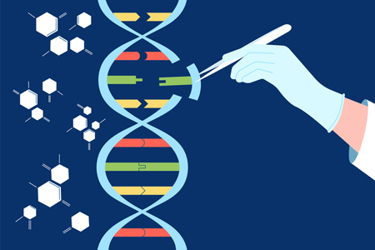Allele-Selective Editing Of mHTT Utilizing AAV5-Delivered Life Edit® Crispr System (LETI-101) Results In Meaningful Reduction of mHTT Protein
By Logan Brown, Ph.D.; Nancy Cheng, Ph.D.; Alexandra Crawley, Ph.D.; Helen Mao, Ph.D.; Jamie Moy, Ph.D.; and Kathryn Woodburn, Ph.D.

LETI-101 is a novel gene editing therapy designed to target the mutant huntingtin (mHTT) gene in Huntington’s disease, utilizing Life Edit's proprietary RNA-guided nucleases for precise DNA editing. The therapy selectively edits the mHTT allele while preserving the wild-type HTT gene, leading to a reduction in mutant HTT protein production. Delivered via AAV5, LETI-101 is particularly focused on heterozygous patients with specific SNPs and offers a one-time treatment with the potential for lasting therapeutic effects.
In preclinical studies, LETI-101 demonstrated efficient editing in patient-derived fibroblasts and significant reductions in mHTT protein in rodent models, with up to 80% reduction in a dose-dependent manner. Off-target analysis confirmed high specificity, with no off-target editing detected. The therapy was well-tolerated in non-human primates, showing favorable biodistribution and no significant immune response. Positive feedback from regulatory agencies has supported the advancement of LETI-101 toward clinical trials. Access the full presentation to learn more.
Get unlimited access to:
Enter your credentials below to log in. Not yet a member of Outsourced Pharma? Subscribe today.
